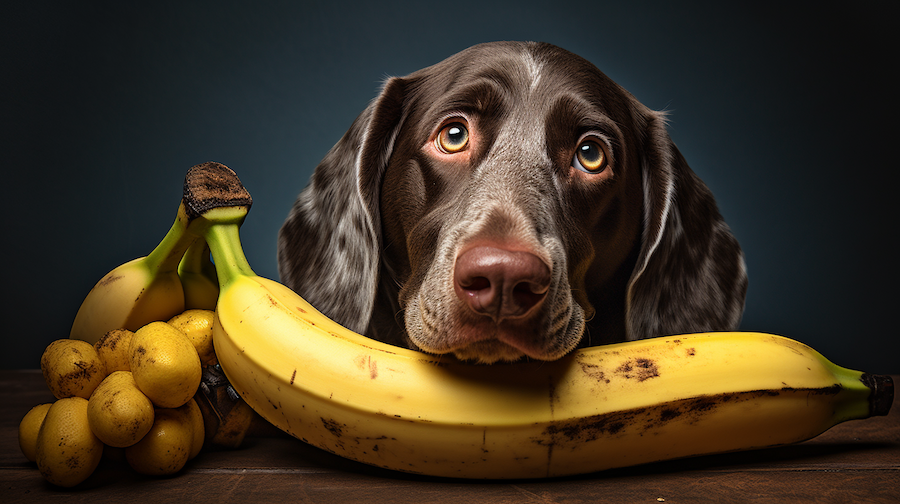A common question among pet parents, especially for the new ones, is what their furry friend can safely consume. Many human foods, even some that seem harmless, can actually pose a threat to your dog’s health. Bananas, a fruit loved by many of us, can occasionally spark a debate. Are bananas safe for dogs? If so, what are the potential health implications? This article delves into the question: Can dogs eat bananas without any health issues?
Before we dive in, it’s important to note that every dog is different. Just like humans, dogs can have varying reactions to different foods based on their size, breed, health condition, and individual sensitivities. However, for the most part, we can establish some general guidelines about feeding bananas to dogs.
Can Dogs Eat Bananas?
The simple answer is yes. Dogs can eat bananas, and they are not toxic for our furry friends. In fact, bananas are often recommended as a treat for dogs because they are rich in vitamins and minerals such as potassium, vitamin C, and vitamin B6. They also contain fiber, which can help if your pup is having digestive issues.
The Benefits of Bananas for Dogs
- High in Vitamins and Minerals: Bananas are packed with essential nutrients, including potassium, vitamin C, and vitamin B6, which are vital for your dog’s overall health. Potassium aids in muscle and blood vessel function as well as the regulation of body fluids. Vitamins C and B6 contribute to your dog’s immune system and brain health.
- Fiber-rich: Bananas contain a good amount of dietary fiber, which can assist in regulating your dog’s digestive system, making them beneficial for dogs with gastrointestinal issues.
- Low in Sodium and Cholesterol: Unlike many commercial dog treats, bananas are low in sodium and cholesterol, making them a healthier alternative for your furry friend.
However, while bananas offer these health benefits, they should be given in moderation due to their high sugar content.
The Downsides of Bananas for Dogs
- High Sugar Content: Although bananas are healthy, they are relatively high in sugar compared to other fruits, which can lead to weight gain and obesity if given in excessive amounts. Obesity can further lead to other serious health issues such as diabetes, heart disease, and arthritis.
- Potential for Choking: The texture of bananas might pose a choking hazard, especially for small dogs or dogs who tend to gulp their food down. Always supervise your dog while they’re eating a banana and consider cutting it into smaller pieces.
How to Feed Your Dog Bananas
If you decide to give bananas to your dog, it’s best to start with small amounts and observe how they react to this new addition to their diet. If there are no negative reactions, such as an upset stomach or any signs of an allergic reaction, you can consider this fruit a safe treat for your dog.
Always remember to peel the banana before offering it to your dog. While the peel isn’t toxic, it’s tough and hard to digest, which can lead to gastrointestinal blockages.
As a general rule, treats (including fruits like bananas) should make up no more than 10% of your dog’s daily caloric intake. This means that for most dogs, a few slices of banana here and there would be plenty. Larger dogs can handle more, while smaller dogs should be given less.
Dogs can eat bananas, and these fruits can be a healthy treat when given in moderation. Despite their high sugar content, the vitamins and minerals bananas contain can offer various health benefits to your pup. Like introducing any new food, always start small, monitor your dog’s reaction, and adjust accordingly. Lastly, always consult with your vet before making significant changes to your dog’s diet or if you have specific concerns about what foods are safe for your dog to consume.
Remember, a balanced diet is key to keeping your dog healthy and happy. Incorporating fruits like bananas can add a bit of variety and excitement to their meals while also providing them with essential nutrients.

